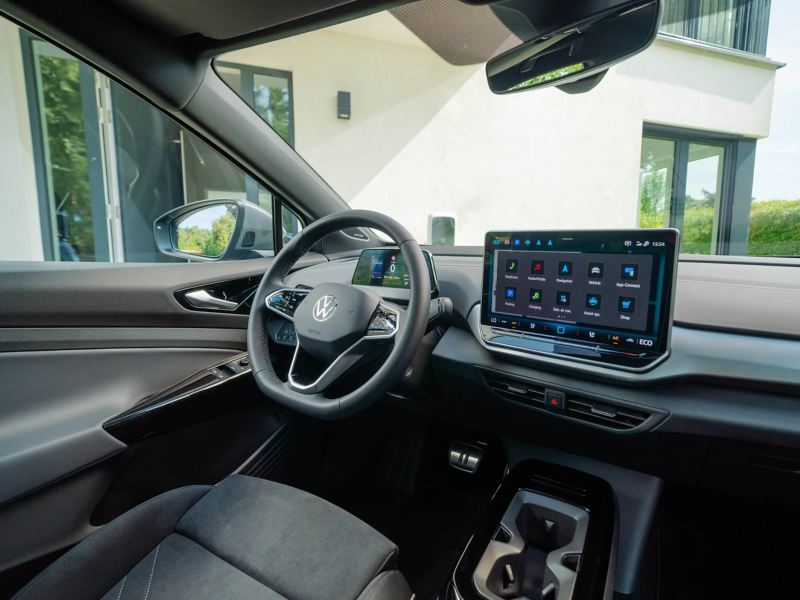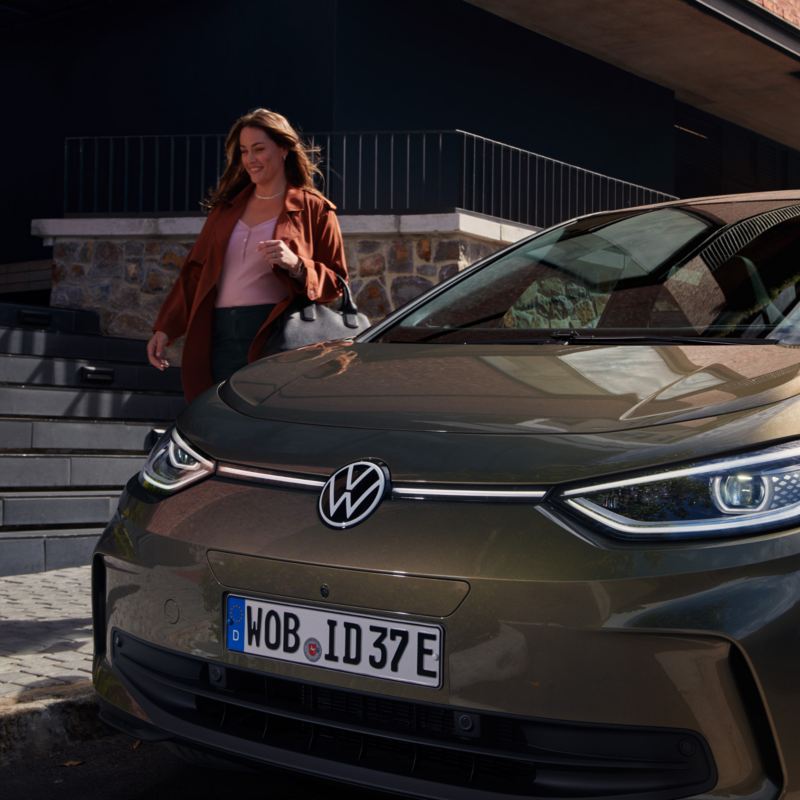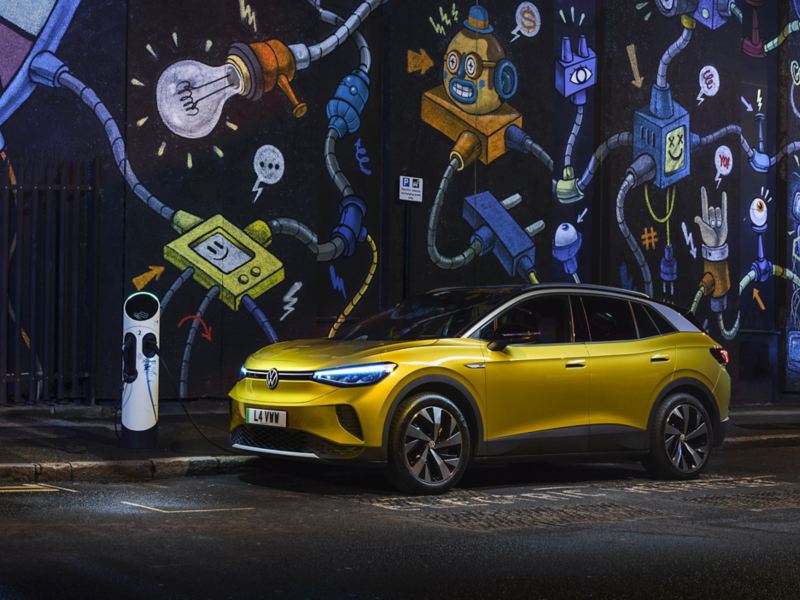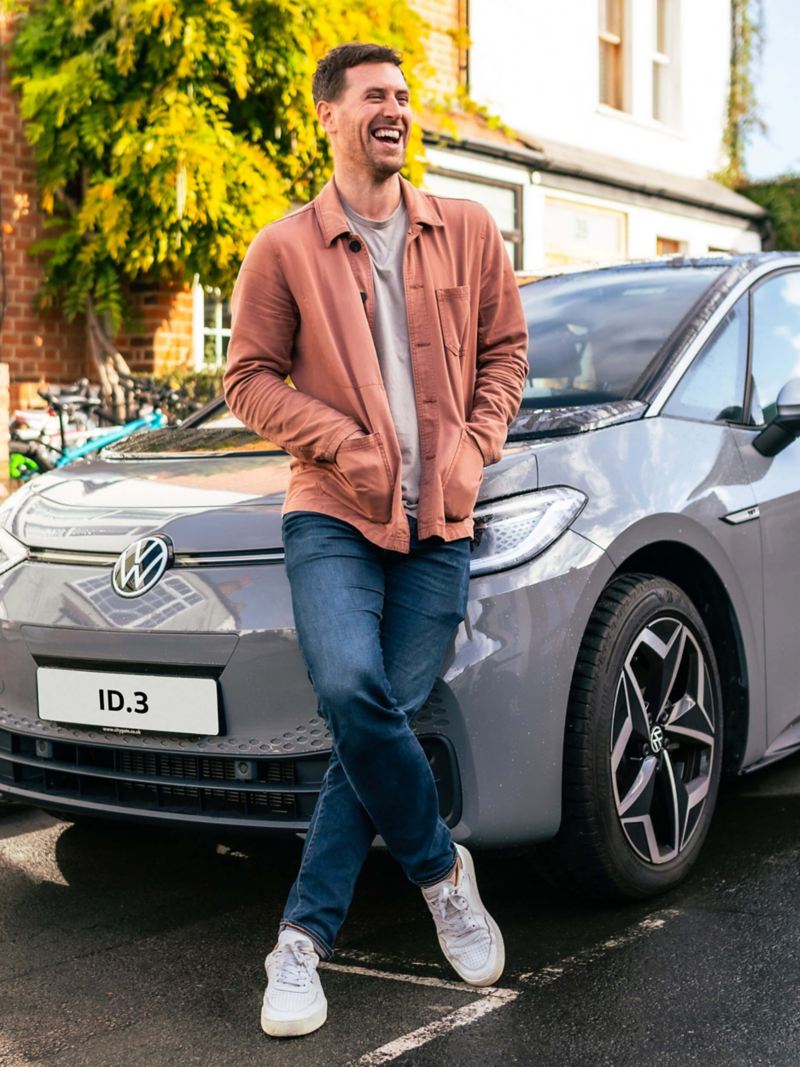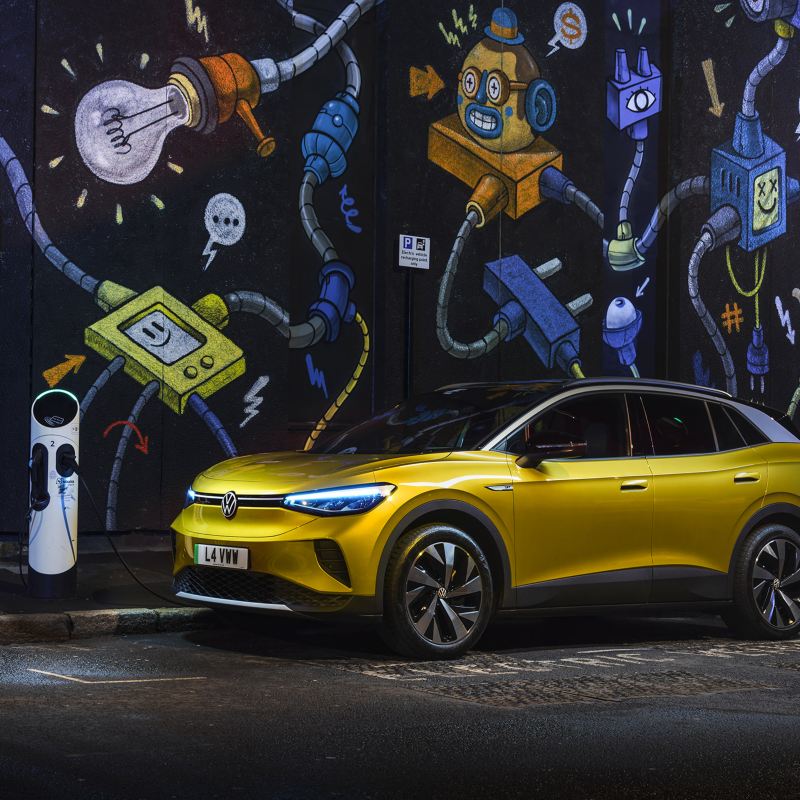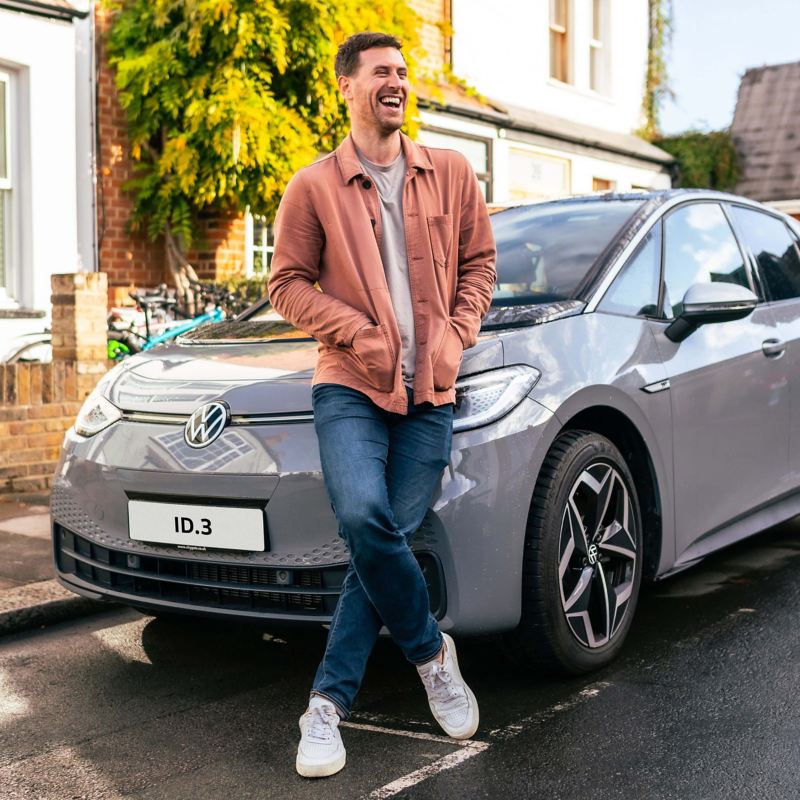Electric cars: how family-friendly are they?
A family car needs plenty of room and storage space. And, of course, it also needs to be safe. Ideally, it should also conserve resources when driving. After all, the issue of sustainability is important to many parents, precisely because of their children. But it is not that easy to find the right car. Or is it? We reveal just how family-friendly electric cars are.
Find out more here:
• Thanks to various battery sizes and ranges, families can choose the electric car that suits them and their needs.
• A family holiday with an electric car – various apps and websites can help with route planning.
• Thanks to their design, electric cars often have more interior space to offer within the same footprint as conventional combustion engine-powered vehicles.
• EuroNCAP certify that Volkswagen electric cars have a high level of safety.
When you need range – a completely normal family day
Driving the kids to nursery and school in the mornings, then off to work. Picking up the weekly shop before taking the children to gymnastics, piano, or swimming lessons. Just a normal day in the life of many families. Packed full of activities. You need great organisational skills to stay on top of it all. And a car that has enough range, since a completely “normal” family day can easily mean plenty of miles.
The issue of range in particular, always leads to discussions and doubts about whether an electric car is the right choice. Yet a lot has changed recently, precisely when it comes to electric car range. Nowadays, one battery charge gets you further. Electric car drivers can now tailor their vehicle's range precisely to their needs and habits with a selection of different battery sizes: for example, the Volkswagen ID.3 with 45 kWh , 58 kWh and 77 kWh net battery power. For people who “only” drive between school and the office, the first version with a customer-driven range of between 142 and 205 miles2 is sufficient. On the other hand, an electric car with a larger battery is perfect for families who often cover longer distances: for example, the ID.3 with a 58 kWh battery provides a customer-driven range of 186 to 260 miles2 and, with a 77 kWh, a range of up to 340 miles (WLTP).
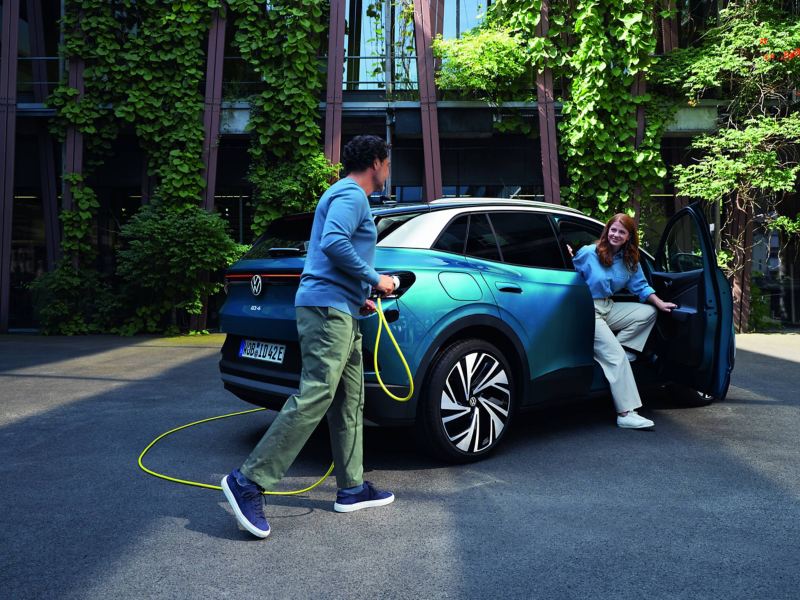
Depending on its battery size, an electric car only needs to be charged two or three times over an 500 to 600 mile journey
Arrive relaxed: off on the family holiday
Speaking of longer distances – do you want to go on holiday in your electric car, too? With a little planning, a family holiday in your electric car is perfectly feasible. Various apps and websites can help you to plan your route and show you where you can charge your electric vehicle. Depending on its battery size, an electric car only needs to be charged two or three times over an 500 to 600 mile journey. And while you’re charging your electric car at a charging station, you and your children can take a leisurely break, get something to eat, breathe some fresh air or work off some steam in a playground. The ID.4 can charge enough power for up to 198 miles3 in around just 30 minutes at a fast-charging station. This means that you will be relaxed when you arrive at your holiday destination in the mountains or by the sea.
Plenty of space: for shopping, buggies, and luggage
Parents need one thing above all else, especially when they go on holiday: space in the car. But families usually need to stow plenty of things in everyday life, too, from weekly shopping, buggies, and school bags, to skateboards and balance bikes. All this is not a problem for many electric cars. As they are designed fundamentally differently to conventional combustion engine cars, they often offer more space within the same footprint. Their batteries are generally built into the floor of the vehicle, saving space. This has a positive effect on the boot volume, among other things: the boot of the ID.4, for example, provides around 543 litres of space and up to 1,575 litres with the back seat folded down. Yet the interior of an electric SUV also benefits from this – a five-seater offers plenty of space for your little ones and their car seats. Parents can also enjoy plenty of head and legroom. If you’ve ever endured long journeys wedged between bags and toys, you’ll appreciate this. And if things are still a little tight, you can fit a roof rack to the ID.4 or an optional trailer hitch.
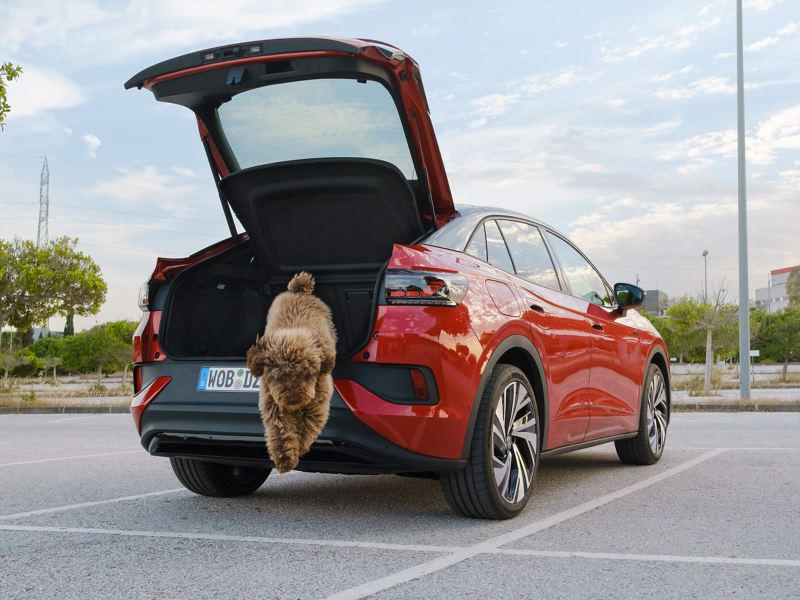
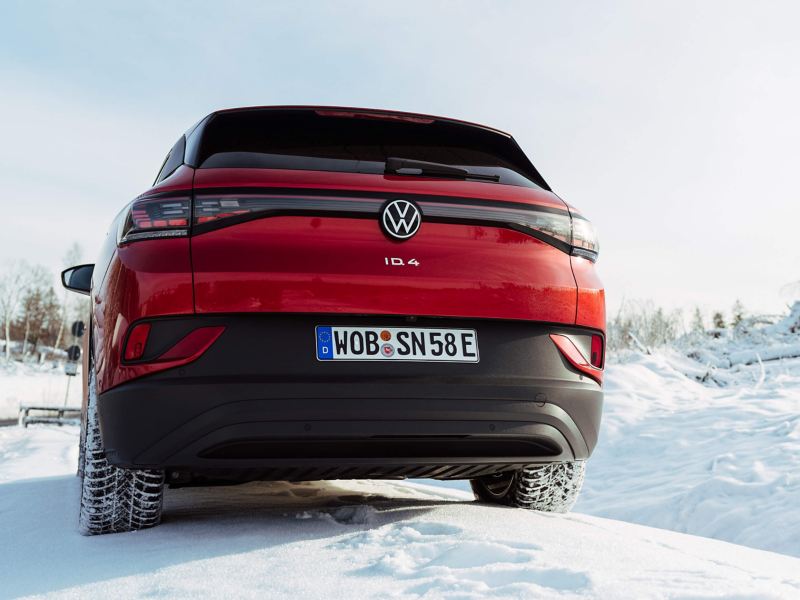
Safety first: electric cars do well on crash tests
Space, sustainability, and range are important criteria when it comes to making the decision about which model has come out on top and is to be the new family car. However, many parents are also concerned about a different issue: the safety of the vehicle, and with that the question of “what would happen if we did have a serious accident?”. The safety of electric cars in accidents is often questioned. But this is unjust. Crash tests carried out by the ADAC and DEKRA, among others, have shown that electric cars are at least as safe as combustion engine vehicles. This is also down to the fact that electric vehicles’ electrical components have to be designed to be "intrinsically safe". This means that in the event of an accident, the flow of electricity is stopped immediately, which usually means the battery poses no danger.
Then there’s also the fact that modern and innovative technologies are finding their way into many new models. For example, the development of the Volkswagen ID.models also included occupant protection as a priority alongside the issue of protecting the HV battery in the event of an accident. A new kind of airbag was developed to make the car even safer: the centre airbag. It opens between the two front seats to prevent the driver and front passengers colliding in the event of a side-on crash. The centre airbag was also one of many features that impressed the examiners in a renowned Europe-wide safety test. They gave the ID.3 good ratings in all criteria – protecting adult occupants, children and unprotected road users, as well as the driver assistance systems. The ID.3 was awarded the top rating of five stars in the crash test.
A good investment: electric mobility is worth it
It can also be very financially worthwhile to drive electric as electric car buyers may receive a government environmental incentive under certain circumstances. They can also currently enjoy vehicle tax exemptions and reduced company car taxation. In addition, there are schemes available for the installation of charging stations. Not forgetting that electric cars enjoy special rights in road traffic in many cities. For instance, there may be special parking spaces available, electric car drivers may be able to park more cheaply or even for free and can even use the bus lanes in some cities.
Entertainment and comfort: time just flies by
“Mum, are we nearly there yet? Dad, how much longer?” Sound familiar? It’s why we’ve packed our electric cars with entertainment: sound system, music streaming, comfortable seats, ambient lighting and, in some models, even a panoramic roof so even the littlest ones can pass the time happily.
